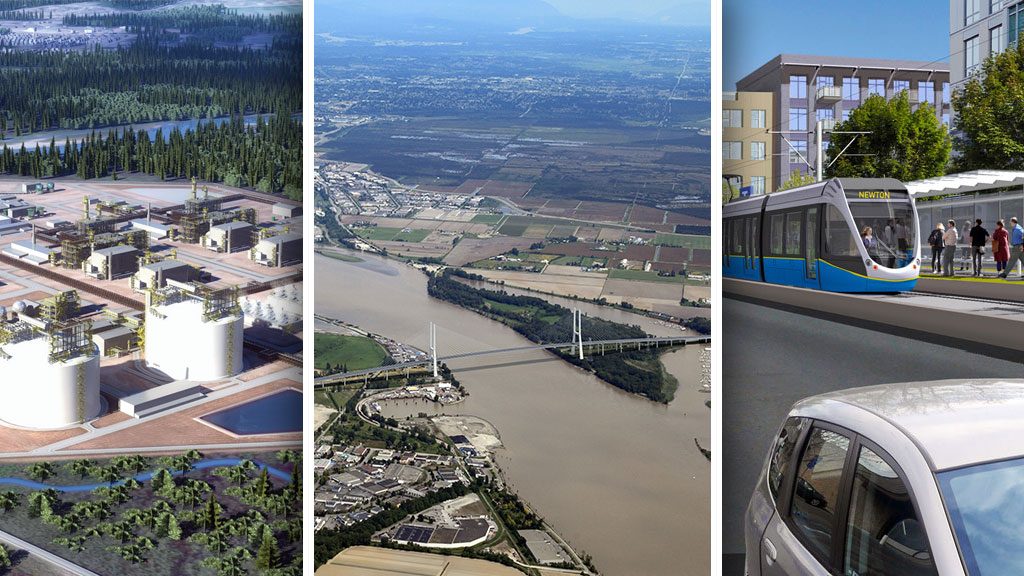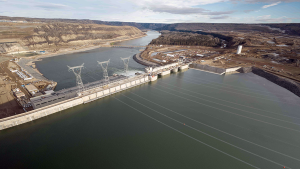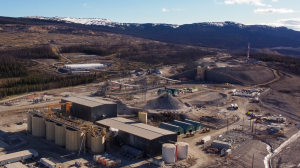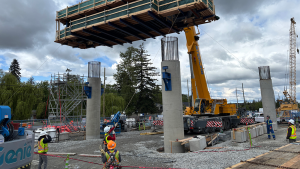After years of planning and millions of dollars spent, the Massey Bridge project came to a screeching halt late last year. An independent review by B.C.’s NDP government now recommends going back to the drawing board after construction on the bridge had already begun.
Construction was planned to start on light rail transit in Surrey this year, but this plan was also scrapped after an election. The project was first proposed in 2012, but now the city will start over, this time planning to extend the existing SkyTrain route.
Recent protests pertaining to the Trans Mountain pipeline and the Kitimat LNG project are also raising eyebrows about the future of these megaprojects.
The uncertainty surrounding these builds has some in the construction industry concerned about the region’s competitiveness.
“Delays to large infrastructure projects have a domino effect across industry and inside the local communities,” said BC Construction Association (BCCA) president Chris Atchison. “A major project takes years of planning. Contractors are working far in advance to ensure they have the resources allocated, including the skilled tradespeople needed to deliver the work safely and to a world class standard.”
Atchison added project cancellations take a toll on productivity in the short term but have a larger impact over time by causing contractors to think twice about bidding on public projects.
“And if they do bid, you can be sure they’re assessing the risk and adjusting their bid to compensate for that risk,” said Atchison. “That harms taxpayers because it drives up costs, and it harms industry because productivity and innovation are compromised, as is an employer’s ability to guarantee a steady income to their skilled workforce. Bottom line is, if you’re going to delay a massive project, you better have a damn good reason and it better not be there wasn’t enough bureaucracy the first time.”
Chris Gardner, president of the Independent Contractors and Businesses Association (ICBA), expressed his own issues with the region’s slow and complex processes, putting the blame on government officials.
“It’s frustrating because, if you look at our region, it is a fast-growing region and we need more infrastructure,” said Gardner. “But we take too long to build it. The approval processes are complicated and convoluted. We go way beyond and end up in an endless round of discussion and consultation.”
In the case of the Massey Bridge, Gardner noted the original plan was debated for many years. There were 145 technical reports produced and there were more than 110 meetings with cities as well as numerous open houses for the public.
“The tunnel is about 60 years old and is one of the most significant bottlenecks in Canada,” Gardner said. “We are at a point where we will have to spend $50 to $100 million just to do repairs regardless of what happens next, so we can’t afford to wait until the replacement because of safety concerns.
“The Patullo bridge is 83 years old and is literally falling into the river. How can the third largest city in Canada allow itself to get into a situation where it has infrastructure far beyond its useful life and still debate if we need it or not?”
Gardner said the problem boils down to a failure of political leadership at all levels.
“It’s all three levels, plus Metro Vancouver, who have not been able to sit down and figure out a plan that works for British Columbians,” said Gardner. “What happens is that ultimately taxpayers and commuters pay the price.”
Gardner added it also costs the province investment.
“We are too slow to make the investments in infrastructure we need to improve quality of life and economic competitiveness,” Gardner said.
He noted that Vancouver’s Canada Line, a heavily used part of the SkyTrain system which links to the Vancouver International Airport, was voted down several times by Metro Vancouver’s Mayors’ Council and was only built after the province moved forward without support.
“It takes stronger political leadership that we are not seeing,” said Gardner. “From the perspective of the construction sector, we are an important part of the economy but the challenge we have is the length of time it takes to get projects approved and the delays are having a significant cost that impact the cost of housing and our competitiveness.”











Recent Comments
comments for this post are closed